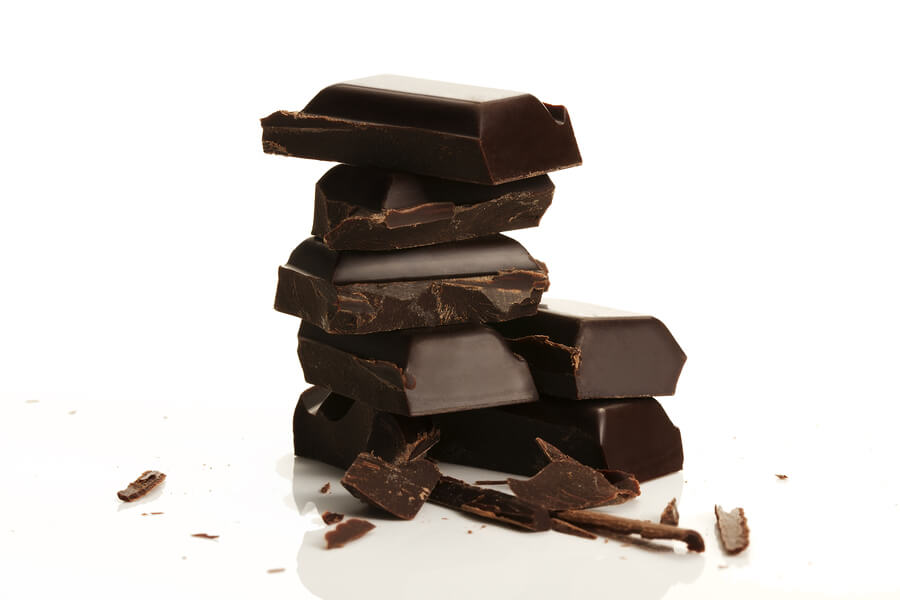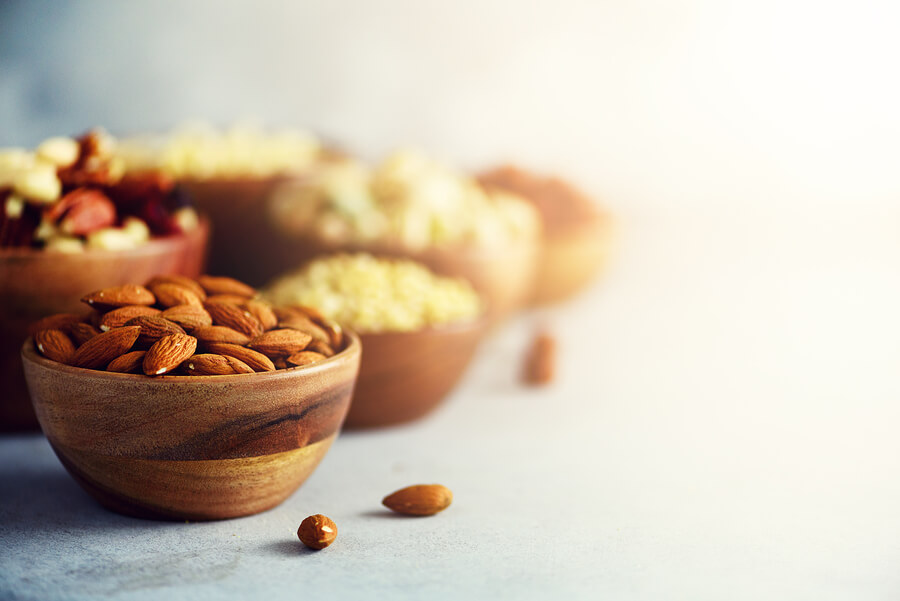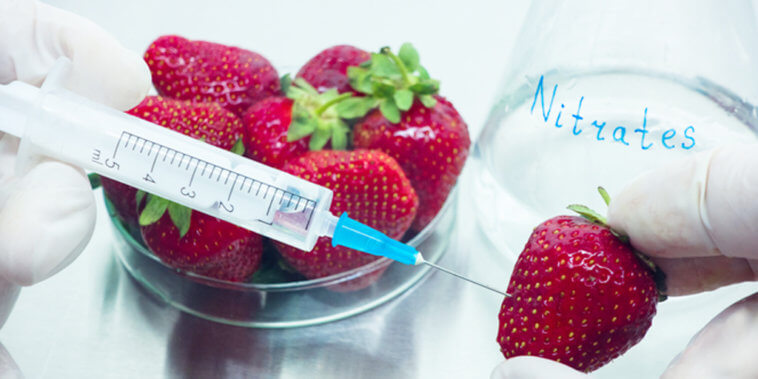Table of Contents
You have probably heard of nitrates at least once in your life – someone said that they were necessary or someone said that you should avoid nitrates in food. In most cases, you are not sure what to do and if you should even care.
However, how much do you really know about nitrates?
Are they really that good – or bad?
How do you take them properly? You can find out more by reading on.

What are Nitrates?
Nitrates are compounds naturally found in vegetables, dairy and meat. They are also added to processed meats in order to preserve them. In some cases they can be healthy – and in other cases, detrimental to your health. But for that, we need to delve deeper into the chemistry of this compound.
While we hear about nitrates all the time, there are actually nitrates and nitrites.
What’s the difference?
For one, both contain a single nitrogen – only nitrate has 3 oxygen components compared to nitrite having 2 parts.
Nitrates are mostly harmless on their own, but the trouble starts when they convert to nitrites in most cases. When nitrates reach our mouth, the bacteria and enzymes in our bodies turn them into nitrites. They are good when they form nitrite oxide, but they also form nitrosamines which are bad for you.
Nitrites are good because they fight and prevent bacteria but there could be some issues. For example, nitrites is how meat stays red or pink at the stores. Without it, the meat turns brown and is less appealing to consumers.
When found in fruit, vegetables, and grains, it prevents the appearance of nitrosamines. However, nitrosamines are used in:
- Cosmetics
- Pesticides
- Tobacco
- Rubber
When it comes to food, it picks up nitrosamines from the air and fertilizers. They also form in people with acidic stomachs as well as in high temperatures and during frying.
In cured meats it stops the growth of microorganisms and helps them retain the color.
Nitrates which are naturally found are beneficial for our health – for relaxing the blood vessels and improving blood flow in particular. However, vitamin C naturally prevents nitrosamines from forming in these foods. This is among the reasons why it’s more important to eat fruit and vegetables than meat. It’s also important that we produce nitrites as well.

Why Nitrates are Bad for You
Nitrates – nitrites specifically – are there to fight harmful bacteria in processed meats like bacon, ham and so on. It can also be found in fruit and vegetables. But, in certain conditions, nitrite can be harmful to the body.
So, how is this possible?
Well, nitrite is harmful in large quantities. There are also many factors within your own body which determine whether nitrite is good or bad for you. In excessive doses, it can lead to a blood disorder called methemoglobinemia. It happens when nitrite in the blood deactivates hemoglobin. Hemoglobin then can’t help red blood cells carry oxygen. This often happens when the water is contaminated by the fertilizer or pesticides.
Even moderate amounts of nitrite can cause health problems if it turns into nitrosamines, as this can cause cancer. If it turns into nitric oxide, it serves a wide variety of important functions within the body.
But because vitamin C in fruit and vegetables is stopping nitrite from becoming harmful, meat manufacturers have started including it in their products which helps nitrite to become nitric oxide.
So, in essence, it isn’t the nitrates or nitrites that are harmful to your body, it’s more what happens to them when they enter your body as well as how we take them. In water, fruit, vegetables and grains, nitrate has the kind of support it needs to become beneficial for us. However, most of the time, in processed meats, it doesn’t.

What Do Nitrates Do to the Body?
Nitrates, essentially, don’t do anything to our bodies. They are not either good or bad – they are just compounds that exist or are added to food. And yet, what happens to them after you eat nitrates in food can either turn harmful or healthy for humans.
When nitrates reach your body, they turn into nitrites which can become nitrosamines which are the real problem with nitrates.
When nitrates first reach your mouth, they turn into nitrites and then as they travel through your body more and more of them become nitrites – 5% in the stomach, the rest further down your intestines and so on.
If you get too many nitrites in your system, you can risk getting methemoglobinemia. This condition can be caused when nitrates interact with hemoglobin and iron in your body and disable it from carrying oxygen. Then the nitrites convert the hemoglobin into methemoglobin by oxidizing the iron molecule.
This means that you have less oxygen in your body and that’s never good.
You can start getting seizures or even die because of this condition. You can treat this illness by taking nitrates out of your diet, if you recognize it in time.
Nitrate – or rather, nitrosamines – can increase the risk of cancer in stomach and the esophagus. Most of the foods that are related to nitrosamines are processed meats and other nitrite rich foods. If you reduce the amount of these foods, you can reduce your risk of some cancers.
Babies are also at risk of getting various complications from taking too many nitrates and nitrites. Their digestive systems are young and have a higher pH in their stomachs. When the baby takes nitrates, the high pH leads to bigger conversion of nitrates to nitrites. This increases the chances of the baby getting methemoglobinemia. Nitrates in food shouldn’t be on the baby’s menu before 6 months. Some common culprits are:
- Carrots
- Green beans
- Spinach
- Squash
- Beets
Water from wells can also cause this illness and it needs to be checked for nitrates as well. Watch your baby – if they start turning blue or purple, seek immediate help.

Foods That are High in Nitrates
Nitrates, as established, can be both good and bad, depending on how you use them and what you eat. If you want to avoid the harmful type of nitrate or nitrosamines, avoid processed foods and eating nitrates at all if you have acidic stomach. However, if your stomach is healthy and you want to draw benefits from this superfood – as many athletes take it to boost their power too – you should eat the following foods. Make sure you look for organic, natural products to ensure you're getting the best type of nitrates in food.
Beets
Beets are rich in nitrates which your body can easily convert into nitric oxide. This means that they can improve cognitive functions, enhance athletic performance and better heart health.
Garlic
Everyone knows how beneficial garlic can be for high blood pressure. It also improves exercise tolerance. Garlic is also very easy to intake – best taken fresh and without processing like cooking or frying.
Meat
Food such as chicken, beef and pork contains high levels of nitrates – of course, without processing. These can improve heart health, athletic performance and many other things. Cook them in healthy ways such as baking to reap the most benefits.

Dark Chocolate
Rich in flavanols, dark chocolate can help establish the optimal levels of nitric oxide in our bodies. Thus, it improves blood vessel health, blood pressure, brain power and many other things.
Leafy Greens
Spinach, kale, arugula and so on are all full of nitrates which can convert into nitric oxide in your body. Many benefits of nitrate-rich foods follow when you enjoy some leafy greens.
Citrus fruit
Citrus fruit are rich in vitamin C which helps turn nitrates in your food into beneficial nitric oxide. Lemon, oranges, tangerines, grapefruit and others are excellent at helping the body absorb nitric oxide properly and have many other health benefits.
Pomegranate
Full of powerful antioxidants and vitamins, this fruit helps with protecting the cells from damage and nitric oxide as well.

Nuts and seeds
Nuts and seeds have a high amount of arginine which is essential in the nitric oxide absorption. Not to mention the numerous health benefits for your entire body when you eat them.
Watermelon
Watermelon is full of citrulline which is turned into arginine – this later helps the body absorb nitric oxide absorption.
Red Wine
Red wine increases nitric oxide synthase which helps create more nitric oxide.

Can You Cure Meat without Nitrates?
Meat can be cured without nitrates, but it needs to be done carefully as you don’t want any harmful microorganisms surviving the process. There are ways that include steps such as:
- Covering the meat in salt and covering the dish to sit for a day before hanging to dry
- Submersing the meat in a salt-vinegar brine to cure
- Using celery powder (a safe, natural source of nitrates)
There are many ways to naturally cure meat, if you'd like to do it yourself.
Not interested in spending days curing meat? Simply look for labels that state NO NITRATES OR NITRITES ADDED, OTHER THAN THOSE THAT NATURALLY OCCUR
Check the ingredients list to make sure some sort celery powder, extract, etc. is present. There shouldn't be any other listing of nitrates or nitrites in food.
Nitrates can be either good or bad for you – it’s your choice of food that affects your experience with them. Make sure you check with your doctor and take the necessary exams before you start eating more nitrates than usual, just to be safe and know that they can aid your lifestyle.
Pick fresh fruit and vegetables rich in vitamin C and avoid processed foods. Even though measures against the toxicity of nitrosamines are sometimes taken, processed foods can still have plenty of harmful effects. Hopefully, your smart use of nitrates can help you reap healthy benefits.
Do you think it's a good idea to avoid nitrates in food? Share your thoughts down below!
Sources
https://www.livescience.com/36057-truth-nitrites-lunch-meat-preservatives.html
https://www.livestrong.com/article/509298-how-nitrates-nitrites-affect-our-bodies/
https://www.livestrong.com/article/541308-fruits-vegetables-that-are-high-in-nitrates/




Comments
Loading…